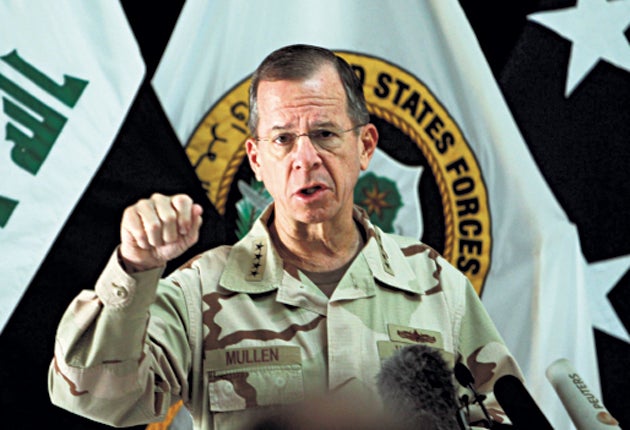Anger at China's access to crashed US helicopter

America's top military commander shunned Pakistan on his final visit to the region because of its decision to allow the Chinese to take a close look at the crashed US helicopter involved in the covert raid that killed Osama bin Laden, an official familiar with the discussions told The Independent.
Earlier this month, Admiral Mike Mullen, the outgoing Chairman of the Joint Chiefs of Staff, visited only Kabul on his farewell trip to the region.
At the time, many in Pakistan saw the move as a deliberate snub amid worsening ties.
The official said that Adm Mullen, who is due to retire next month. shunned a visit to Islamabad because he was appalled by Pakistan's refusal to say whether the Chinese had access to the wreckage of the stealth Blackhawk helicopter abandoned at the al-Qa'ida leader's hiding place in Abbottabad after it struck a wall.
Adm Mullen, the official said, had felt Gen Ashfaq Parvez Kayani, the Pakistani army chief, had lied to him about the helicopter. It is unclear whether the Chinese were given direct access to the charred remains, but Washington believes that Beijing is now in possession of detailed photographs.In the past, Adm Mullen has publicly acknowledged his previously warm relationship with Gen Kayani. The breakdown is a sign of how severely ties between Washington and Islamabad have been strained.
The decision to allow the Chinese access to information about the helicopter, first reported by the Financial Times, reveals the anger felt by the Pakistan military at being kept in the dark about the bin Laden raid. The New York Times reported that US officials had intercepted telephone conversations where Pakistanis invited the Chinese to examine the helicopter.
The helicopter, carrying a team of US Navy Seals, crashed into a boundary wall as it landed in the compound. Although the Seals blew up the helicopter, the tail – which has radar-evading capability – survived intact.
In the diplomatic fallout after the raid, the tail became a source of division between the two countries. As American calls for it to be returned grew louder, Pakistanis incensed by the perceived violation of sovereignty stalled, and even leaked to the press that they were mulling whether to transfer the technology to China.
Join our commenting forum
Join thought-provoking conversations, follow other Independent readers and see their replies
Comments
Bookmark popover
Removed from bookmarks